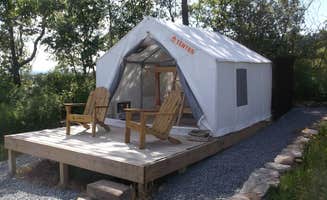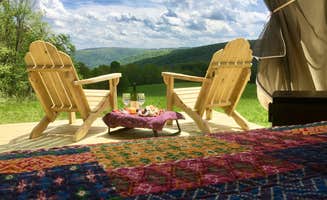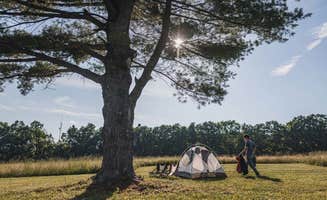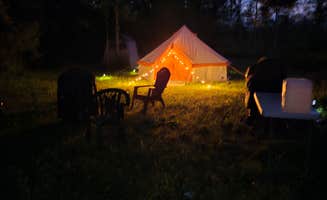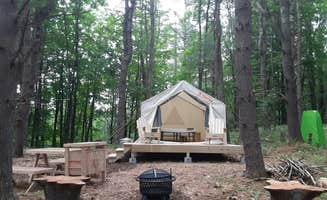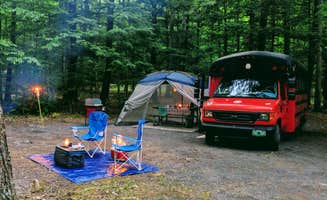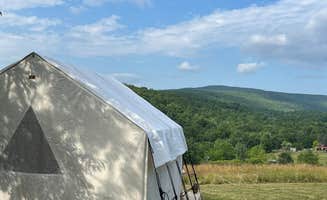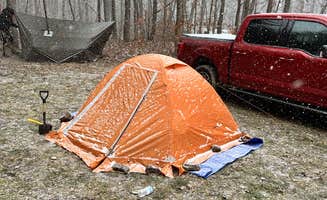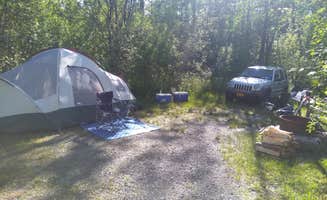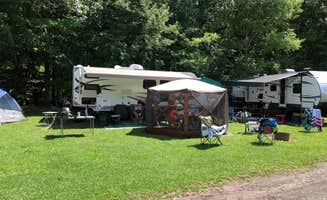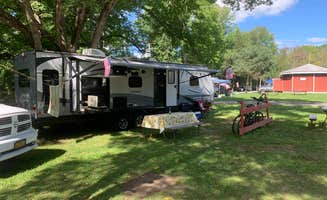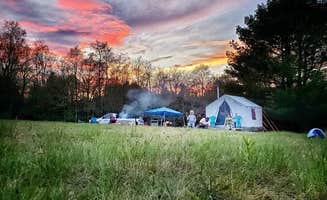Dispersed camping options abound in the rural landscape surrounding Howes Cave, New York. The region sits at elevations ranging from 600 to 1,400 feet with heavily forested terrain and numerous streams. Winter camping remains viable at select locations, with Burnt Rossman State Forest offering accessible sites even during colder months.
What to do
Waterfall exploring: Several waterfalls are within short driving distance of campsites near Howes Cave, New York. At Max V. Shaul State Park Campground, campers can venture to nearby falls. "There's no pond/lake here but there's several waterfalls nearby and vromans nose," notes Brian H. in his review.
Swimming and boating: The Thompson's Lake beach area provides water-based recreation during summer months. Thompson's Lake Campground offers "kayak and boat rentals, a nature center next door you can walk too," according to Sabrina H., making it ideal for water activities just 30 minutes from Howes Cave.
Winter recreation: For cold-weather enthusiasts, Burnt Rossman State Forest permits winter camping with sites accessible from the main road. Felix R. confirms it's "a great location for winter camping. Site easily accessible from road. Beautiful, peaceful, great time!"
What campers like
Privacy between sites: Many campgrounds in the area offer well-spaced camping spots. At Hide-A-Way Campsites, Jackie M. found it "well maintained clean campground. Friendly attendants guided us to site and directed in spot." The small size contributes to its quiet atmosphere.
Streamside camping: Primitive sites along waterways provide natural white noise and scenery. At Betty Brook Camp, Robert B. notes, "You camp on the stream. There is a couple of spots," making it popular with campers seeking water features.
Modern bathhouses: Facilities at established campgrounds receive consistent positive mentions. Max V. Shaul State Park features new restroom buildings with "new bathrooms/showers and family bathrooms," according to Margaret L., who appreciates these upgrades along with reasonable firewood prices.
What you should know
Road conditions: Access to remote sites can be challenging, especially for larger vehicles. Duck Pond Campsite reviews warn about difficult approaches: "The road in on old cemetery rd was pretty rough, so we decided to go out the other way, which was way worse," shares The L., noting intermittent cell service that complicated navigation.
Wind exposure: Higher elevation campsites experience significant wind. Frosty Acres Campground sits at approximately 1,400 feet elevation and gets "windy as all get out," according to James S., though this position rewards campers with "view of the sunrise over the entire valley."
Early reservations: Popular campgrounds fill quickly during peak season. Thompson's Lake Campground is especially busy between Memorial Day and Labor Day weekends, with lakeside sites booking months in advance.
Tips for camping with families
Playground access: Several campgrounds feature dedicated play areas for children. Glimmerglass State Park Campground receives praise from Dana O. who writes, "This campground has always been my go to. Now that I have kids, I appreciate the playground area near the beach more."
Nature programs: Educational opportunities enhance family camping experiences. Thompson's Lake offers a nature center with exhibits and programs specifically designed for younger visitors during summer months.
Washing stations: Family campers appreciate dedicated facilities for cleaning dishes. Melissa S. highlights Thompson's Lake's "nice bathroom facilities and dish washing station!" making mealtime cleanup easier when camping with children.
Tips from RVers
Site leveling: Many campgrounds have uneven pads requiring adjustment. Jackie M. notes that Hide-A-Way Campsites has a "gravel unlevel pad full hookups," suggesting RVers bring leveling blocks.
Winter RV options: Limited winter camping exists for hardy RVers. Frosty Acres Campground maintains a small winter section where "you'll have the entire mountain side all to yourself!" according to James S., who appreciates the opportunity for winter campfires and activities.
Water quality concerns: Some campgrounds experience water issues during peak season. Peter S. recommends bringing your own water when visiting certain campgrounds, noting water pressure and quality can vary significantly depending on the facility and time of year.


